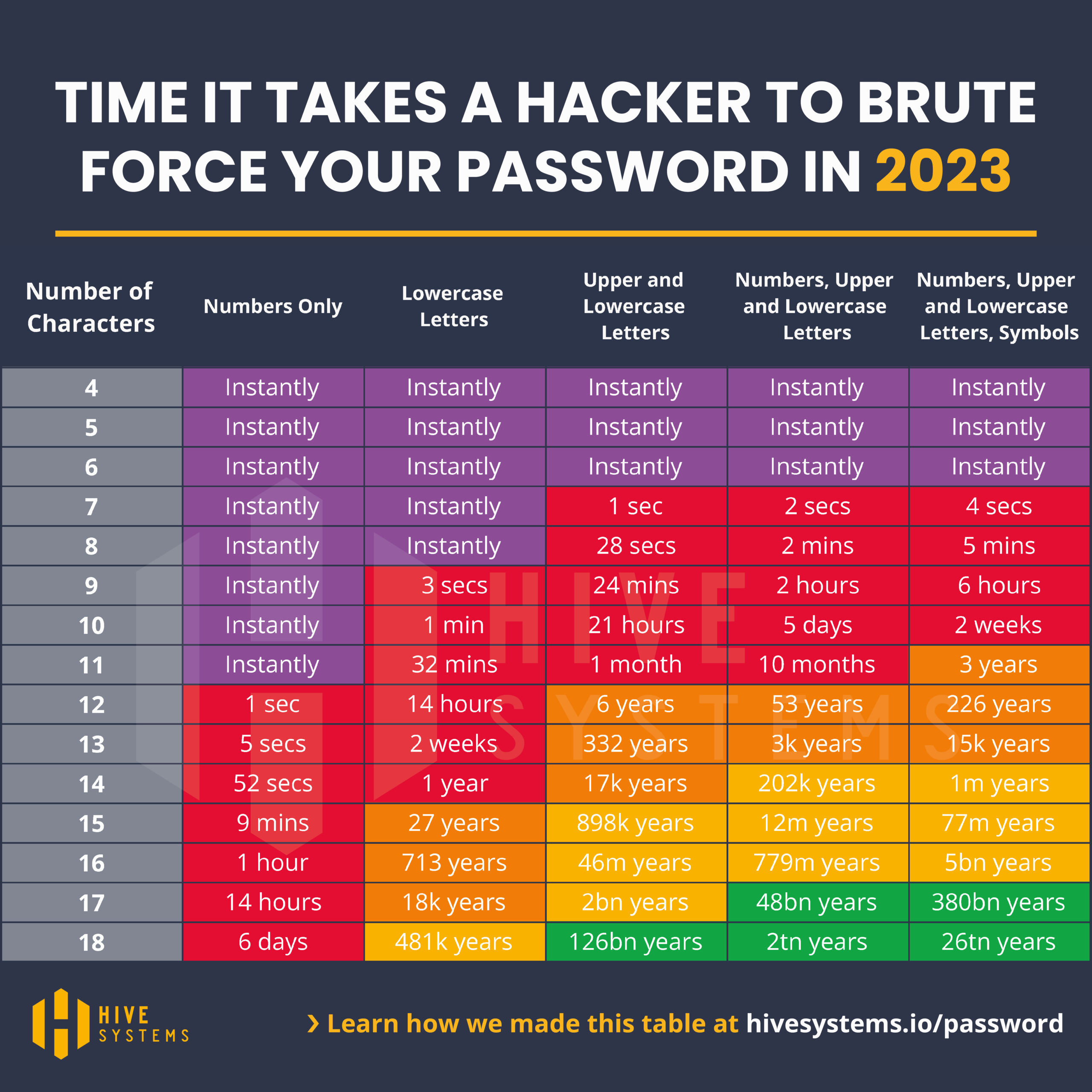In the digital age, securing our personal, business and sensitive information online has become more critical than ever before. One of the most common methods used to protect this information is passwords. However, as technology advances, so do the techniques used by hackers to crack passwords.
Hive Systems conducted research to understand how susceptible password are to cracking and the time it takes to crack using Brute Force. Brute force attacks involve trying all possible combinations of passwords until the correct one is found.

Source: https://www.hivesystems.io/password
As described in the report from April 2023, Hive found that an 8-character complex password could be cracked in only five minutes if the attacker was to take advantage of the latest graphics processing technology and artificial intelligence. Further, a seven-character complex password could be cracked in 4 seconds, while one with six or fewer characters could be cracked instantly. Shorter passwords with only one or two character types, such as only numbers or lowercase letters, or only numbers and letters, could also be cracked in an instant.
On the plus side, even simpler passwords with a greater number of characters are less vulnerable to cracking in a short amount of time, according to Hive’s research. An 18-character password with only numbers would require six days to crack, but one with the same number of characters using lowercase letters would take 481,000 years to crack This piece of data shows why passphrases, which use a long string of real but random words, can be more secure than a complex but short password.
Importance of Strong Passwords
Creating strong passwords is the first line of defence against password cracking attempts. Here are some tips for creating robust passwords:
- Length and Complexity: Longer passwords with a mix of uppercase, lowercase letters, numbers, and special characters are more secure.
- Avoid Common Words: Avoid using easily guessable information such as names, birthdays, or dictionary words.
- Unique Passwords: Use different passwords for different accounts to prevent a security breach on one platform from compromising others.
How to Protect Yourself & Business
- Use Password Managers: Password managers can generate and store complex passwords for different accounts, ensuring you don’t have to remember them all.
- Two-Factor Authentication (2FA): Enable 2FA whenever possible. This adds an extra layer of security by requiring a second form of verification, such as a fingerprint or a unique code sent to your phone.
- Regularly Update Passwords: Update your passwords periodically, especially after a security breach. This ensures that even if your old password is compromised, it won’t be valid for long.
- Stay Informed: Stay updated on the latest security practices and be aware of common phishing techniques to avoid falling victim to such attacks.
Password cracking is a constant battle between hackers and security experts. By understanding the methods employed by hackers and implementing strong password practices, individuals and businesses can significantly enhance their online security.
